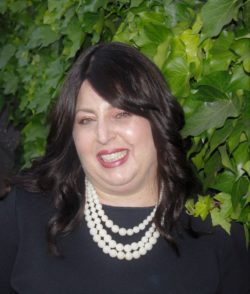Know Your Body, And Speak Up

Last August I turned 50, and despite my loud and proud declarations that “50 is the new 35!”, my body seems firmly rooted in its new half-century identity. In fact, it seems to have been preparing for this milestone birthday for a few years, starting with my ovaries. As we age, our periods change; slow down, skip months, come early, or really, whenever they feel like it. And they get lighter. So when I had a “regularly-heavy” period I just attributed it to peri-menopause. It happened right before my annual exam, so I mentioned it to my doctor. Why? I’m not sure. I’ll attribute that to Divine Intervention. My doctor picked up on the now unusual occurrence of a “regularly-heavy” period and ran with it. She suggested an ultrasound, which led to a biopsy, and then a D&C, and ultimately a hysterectomy.
I wasn’t ready for any of it. I wasn’t ready to be thrown into menopause, and I had no idea what symptoms to expect. I wasn’t able to ask my mom. She had had a hysterectomy when I was 18, then started on hormone replacement therapy, so she never had any menopause symptoms that I knew of. Unfortunately, it’s thought that those hormones led to the breast cancer in later years that took her life. Knowing my personal family history, one doctor told me that “no doctor in their right mind would ever give me hormones “. Great. I’m on my own here. I have no idea what to expect, and no solid way of dealing with it.
My husband and I explored our options over the next several months and ultimately changed doctors to someone who could work at my unbelieving, needing-to-process-this-all pace. And as heartbreaking a decision as it was to have a hysterectomy, it turned out that’s what I needed, as I had Stage 1 Endometrial cancer that was completely removed with the hysterectomy.
Through the heartbreak, anxiety, and grief, I’ve come to see this experience as giving me a new purpose in life- encouraging women to pay attention to their bodies, and to talk with their doctors about changes that they see, even if they seem minor. Equally important is finding a doctor who listens, takes your concerns seriously, and respects you.
I’m so glad that Sharsheret is available to support women going through cancer treatment, but even more so, that they’re here to help spread the word of prevention and early intervention.
To learn more about the signs and symptoms of breast cancer, click here: https://sharsheret.org/breast-cancer/signs-and-symptoms/ or download Sharsheret’s resource here: https://sharsheret.org/product/sign-and-symptoms/.
